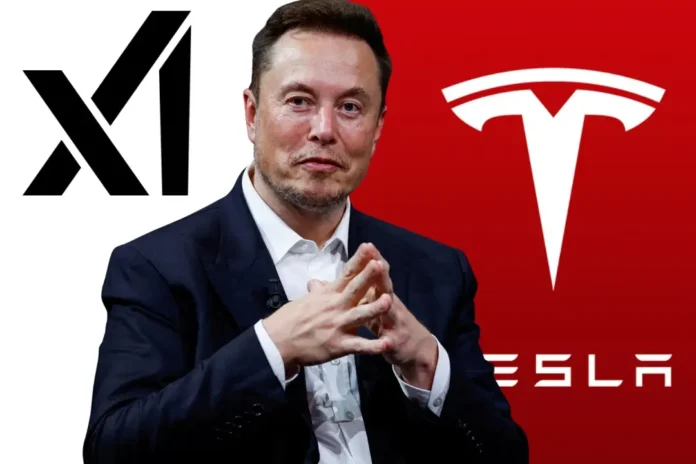
Elon Musk, the world’s most high-profile entrepreneur, is no stranger to unconventional strategies. With leadership roles in Tesla, SpaceX, Neuralink, and now xAI and X (formerly Twitter), Musk continues to blur the lines between technology sectors. A new hypothesis gaining attention is whether Musk is positioning his privately held ventures—X and xAI—as financial leverage to increase his stake in Tesla without spending cash directly.
This article explores how Musk might be leveraging the hype and valuation of xAI and X, and whether a potential transfer of these assets into Tesla could shift the company’s ownership landscape in his favor.
The Moving Parts: Tesla, X, and xAI
-
Tesla: Musk owns around 13–15% of Tesla after selling shares to fund his purchase of Twitter in 2022. He has expressed frustration over not having more control, particularly after a shareholder vote in 2024 approved a controversial $56 billion pay package linked to performance targets.
-
X (Twitter): Acquired for $44 billion in 2022, X has struggled with advertising revenue but remains a powerful platform for Musk to control public narratives and amplify messaging.
-
xAI: Launched in 2023, xAI is Musk’s AI venture aiming to build “truth-seeking” artificial general intelligence. Its flagship product, Grok, is integrated into X, and the company positions itself as a competitor to OpenAI and Anthropic.
The Strategy: Inflate, Integrate, Transfer
According to this theory, Musk may be executing a valuation arbitrage strategy:
-
Build Buzz and Drive Valuation
Using X as a distribution engine, Musk can amplify xAI’s profile. Frequent public references to Grok, artificial intelligence, and Tesla’s role in robotics and AGI can stir investor excitement. xAI could command a high valuation, especially in the current AI bubble where companies like OpenAI and Anthropic attract multibillion-dollar valuations. -
Integrate AI Into Tesla’s Narrative
Tesla is already involved in AI through Autopilot, Full Self-Driving (FSD), and its humanoid robot, Optimus. By aligning xAI’s capabilities with Tesla’s AI ambitions, Musk could argue that a merger or acquisition is strategically sound. -
Transfer to Tesla in Exchange for Shares
The critical move would be to sell xAI or part of it to Tesla, in exchange for Tesla shares. If xAI is overvalued, Tesla may overpay, enriching Musk and increasing his stake without him investing more capital. This would mirror the controversial SolarCity acquisition in 2016, which resulted in lawsuits over conflicts of interest but was ultimately upheld in court.
Concerns and Potential Risks
-
Valuation Risk: If Tesla acquires xAI at a valuation unsupported by financials or growth, it could dilute shareholder value.
-
Governance Issues: Tesla’s board would need to demonstrate independence and act in the best interest of shareholders. Any suggestion that the deal is structured to benefit Musk disproportionately could trigger shareholder lawsuits or regulatory investigations.
-
SEC Oversight: Given Musk’s history with the SEC, any transaction involving related parties and speculative valuations would likely draw scrutiny.
-
Investor Confidence: If investors view this as a self-serving move rather than a strategic integration, it could undermine Tesla’s credibility.
Conclusion
While no formal deal between xAI and Tesla has been announced, the building blocks for such a strategy are visibly in place. Musk owns both X and xAI outright, giving him flexibility to set valuations and direct strategy. By leveraging the hype around AI and using his media platform to amplify xAI’s potential, Musk could theoretically transfer value into Tesla and increase his control, all without directly investing more cash.
If done transparently and with clear benefits for Tesla’s long-term AI roadmap, the strategy could be seen as bold but justified. If done opaquely, it risks being perceived as another instance of Musk bending corporate governance to serve his own interests.
Only time will tell whether this is a shrewd alignment of Musk’s AI ambitions—or a risky play that tests the boundaries of shareholder trust.
Read More: Trump vs. Musk: Grok AI’s Antisemitic Meltdown Sparks Political Firestorm



